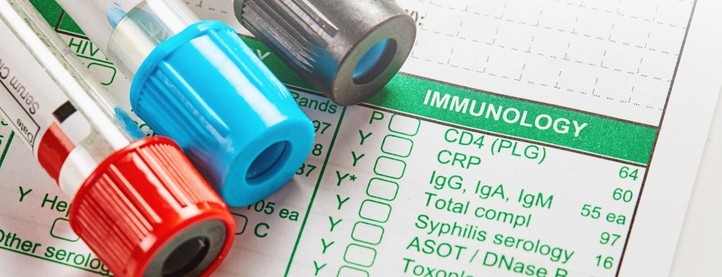
Increasing syphilis cases highlight treatment barriers across Ohio
UC expert speaks with Cincinnati Enquirer on current trends
The Hamilton County, Ohio public health department recently reported syphilis cases reached a six-year high in 2023, representing nearly an 80% increase in cases since 2018.
Carl Fichtenbaum, MD, of the Division of Infectious Diseases in the UC College of Medicine, told the Cincinnati Enquirer said the rise of syphilis does not mean people are having more unprotected sex.
“Most of the studies I’ve seen over the past two to three years do not point to any greater incidence of unprotected sex,” Fichtenbaum said. “There’s always been a very steady rate of sex without condoms.”
While the causes of the increase are complex, barriers to testing and treatment are more easily identified.
“Most primary providers are not equipped to treat syphilis,” Fichtenbaum said. “It’s much easier to treat chlamydia and gonorrhea, because you can write prescriptions. We've really not done a very good job with prevention and treatment of sexually transmitted infections.
Fichtenbaum said it is important to get tested even if you are not experiencing symptoms. For some stages of syphilis, months or years can pass without any sign of the disease.
“If you’ve been in contact with someone who may have had a sexually transmitted infection, it’s very important that you go get yourself tested,” he said.
Read the Cincinnati Enquirer article. (Note: Subscription may be needed to access full article.)
Featured photo at top of test tubes and paper blood test form. Photo/Rapid Eye/iStock.
Related Stories
WLWT: COVID-19 vaccine distribution in Ohio
January 11, 2021
COVID-19 vaccine providers across Ohio will soon get better guidance about the next steps for getting shots into arms. Brett Kissela, MD, spoke to WLWT-TV, Channel 5 and said the benefits of the vaccine outweigh any potential side effects.
MedPage Today: Preop chemotherapy misses mark in pancreatic cancer
January 21, 2021
UC research, published in JAMA Oncology, shows that chemotherapy before surgery for some pancreatic cancer patients may not improve survival rates.
WVXU: Does your spinal fluid show if you have a tumor?
November 9, 2020
University of Cincinnati researchers are starting a clinical trial to determine if they can detect brain cancer in spinal fluid.
